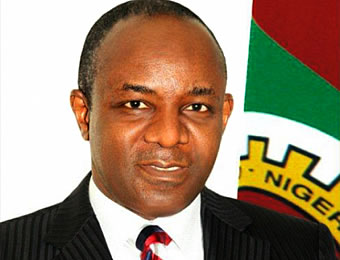The Corporation stated this in its latest Monthly Production and Financial Reports for the month of April which was released in Abuja, which noted that Nigeria’s oil production within the period under review declined to 1.6 million barrels per day (mbpd), some 12.04 per cent from its February 2017 production levels.
According to the report, the Federal Government gets more returns from oil production from the onshore and shallow waters than it did from deep offshore assets, hence, the Corporation’s decision to secure them.
It added that despite the government’s continuous engagements with militants in oil-rich Niger Delta region, some of the issues that still dragged down production during the period were incessant deferred production due to leakages in the Trans Niger Pipeline (TNP) and Nembe Creek Trunk Line (NCTL), as well as leakages and low wellhead pressure at Qua-Iboe Terminal.
A subsisting force majeure at Forcados and intermittent shut-ins in Bonga Terminal due to Turn Around Maintenance (TAM), it added was also esponsible for the drop in production volumes.
“In March 2017, crude oil production in Nigeria decreased to 1.60mb/d which represents 12.04 per cent decrease relative to February 2017 production and also lagged behind March 2016 performance by 18.32 per cent.
“Areas much affected by the insecurity are the onshore and shallow water assets, where government take is higher. Hence, sustained security of onshore and shallow water locations remains a priority to restore production to peak levels,” the report noted.
According to the report, pipeline sabotage in the country, however, decreased from 94 downstream pipelines vandalised points in March 2017 to 82 in April 2017.
This, it noted represented a 12.77 per cent reduction relative to the previous month and which it said was made possible by government’s continuous engagements with the stakeholders.
The report further indicated that NNPC recorded a trading deficit of N5.27 billion in April 2017 representing 6.20 per cent decrease in its collective operating deficit when compared to March 2017 deficit of N5.62 billion.
It stated that “This decrease in the deficit is mainly attributed to the decrease in NPMC/NPSC/ML expenses relatively, although impacted by lower NPDC revenue. Other factors that impacted the overall NNPC’s performance include production shutdown of Trans Niger Pipeline (TNP) and Nembe Creek Trunk Line (NCTL) due to pipeline leakages, shut down of Bonga Terminal for TAM and existing force majeure declared by SPDC as a result of the vandalized 48-inch Forcados export line after the restoration on October 17, 2016.”
Stressing its focus on the security of oil assets, the report said
“NNPC is undeniably in need of the continued support from Nigerians
especially in areas of security and Infrastructural integrity. The favourable business environment will afford NPDC the opportunity to reverse deferred production revenue – average of N20 billion per month – caused by pipeline sabotage.”
WATCH TOP VIDEOS FROM NIGERIAN TRIBUNE TV
- Let’s Talk About SELF-AWARENESS
- Is Your Confidence Mistaken for Pride? Let’s talk about it
- Is Etiquette About Perfection…Or Just Not Being Rude?
- Top Psychologist Reveal 3 Signs You’re Struggling With Imposter Syndrome
- Do You Pick Up Work-Related Calls at Midnight or Never? Let’s Talk About Boundaries








